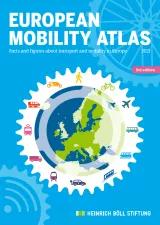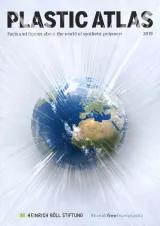Ocean Atlas 2017
The ocean covers more than two-thirds of our planet's surface. It is rich in resources and provides us with food, energy, and minerals. Oceans are important transportation routes and crucial for the stability of our climate and the weather. But due to overfishing, the loss of biodiversity, and ocean pollution, the future of this unique ecosystem faces a grave threat today.
This is where the atlas comes into play. It illustrates the important role played by the ocean and its ecosystems – not only for people living on the coasts but for all of us. It aims to give a current insight of the state and the threat of the seas, that are our livelihoods. Therefore we hope to stimulate a broader social and political discussion about the meaning of the ocean as an important system and the possibilities for protecting it.
The global demand for raw materials continues rising. What could be better than dipping into the treasure chest of the deep sea? Ecologists warn that anything that is destroyed there will not regenerate for a long time, if at all. But a number of countries and industrial companies are already chomping at the bit, eager to secure what they see as their piece of the cake.
Booming cruise tourism: while the number of visitors increases rapidly, the number of desired destinations does not. In 1980, 1.4 million people went on cruises; in 2016 it was already 24 million passengers.
Territorially speaking, the high seas belong to no one – and so when it comes to exploitation, they belong to everyone. International protective agreements and treaties like the Agenda 2030 ratified by the UN will only achieve long-term success if they receive broad support from society.

























